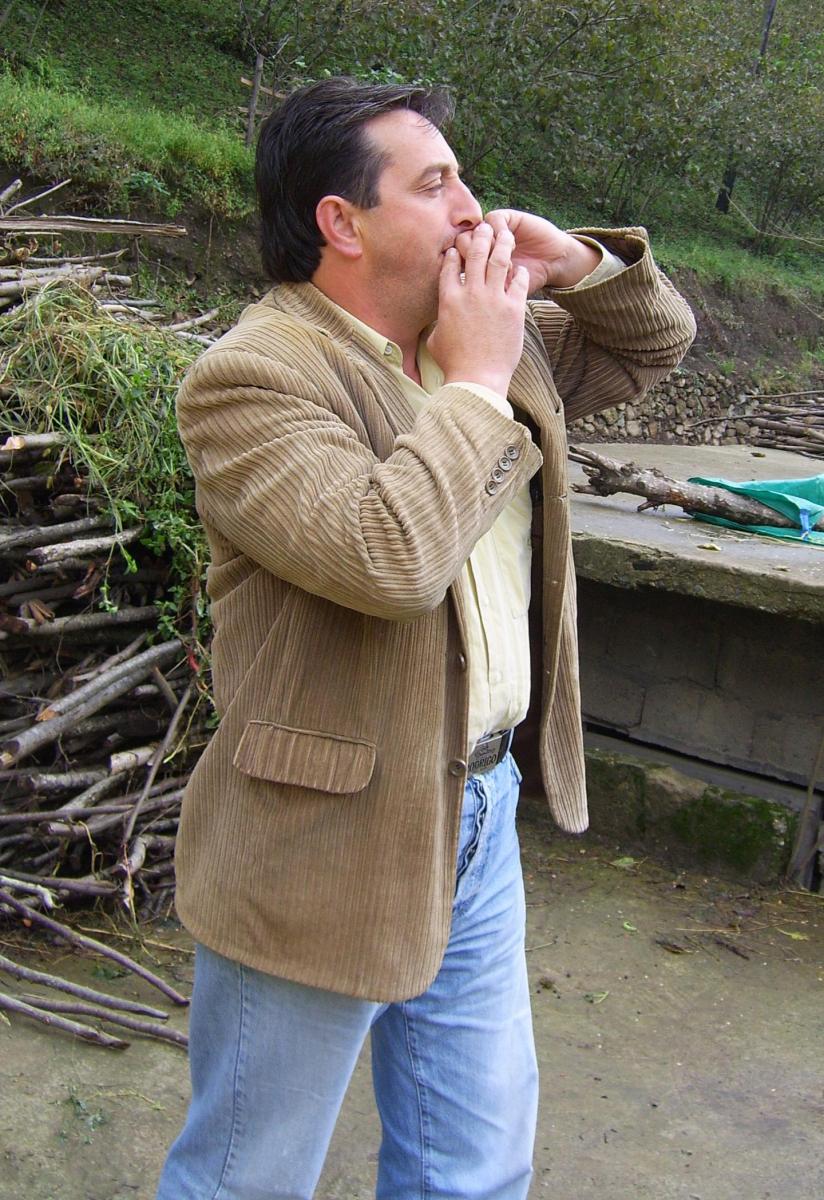Whistle while you talk
Interview with
If you ever find yourself wandering through the mountains of north-eastern Turkey, you might catch the sounds of Whistled Turkish floating on the breeze.  Whistled Turkish is a very unusual kind of language which is processed in similarly unusual ways. Onur Gunturkun spoke to Sam Mahaffey about how he's been investigating what makes it so special as a language...
Whistled Turkish is a very unusual kind of language which is processed in similarly unusual ways. Onur Gunturkun spoke to Sam Mahaffey about how he's been investigating what makes it so special as a language...
Onur - So, whistled Turkish is a way to communicate in mountainous regions. It only exists in tgenortheastern pocket of Turkey and it's used in a few villages. The interesting aspect of it is, that when you whistle, you can be heard in several kilometres away. But when you talk, you can obviously not be heard in that distance. So it means in mountainous regions, whistled Turkish is extremely handy to talk to neighbours that are on the other side of the mountain.
Sam - But whistled Turkish isn't a different language. It's just communicated in a different form. It's like how we can communicate English by speaking it or writing it, or how some people can communicate by using braille and sign language. Whistled Turkish has all the same grammar, words, and meaning as Onur's spoken Turkish. But like I don't understand braille...
Onur - I do not understand whistled Turkish. The physical change from spoken Turkish to whistled Turkish is so radical, so vast, that only after a while, if I knew the context, I could pick a few words, but that's it.
Sam - If native speakers can't understand Turkish in whistled form, can you tell that they're the same language? Let's try. If I wanted to ask for 1 kilogram of tomatoes in Turkish, I'd say...
Onur - Bir kilo domates lütfen.
Sam - Which in whistled Turkish would be:
[Whistled Turkish]
Sam - I could say, "The Black Sea is beautiful"...
Onur - Karadeniz çok güzel.
[Whistled Turkish]
Sam - And how about, "We speak whistle language"...
Onur - Islik dili konusuyoruz.
[Whistled Turkish]
Sam - But Onur has found something extraordinary about whistled Turkish. Whereas other forms of language are processed in one side of the brain, usually the left, whistled Turkish uses both sides. This is because it uses melodic changes to convey meaning. A bit like how we use intonation to express emotion.
Onur - So, let's suppose you're calling up a friend in the evening and she says to you, "I'm so happy that you called me back" which may say, "Oh, I'm so happy that you called me back". It's the same words, it's the same syntax, but it has a completely different meaning. This emotional content tells us a lot about the deeper meaning of a sentence. This is encoded in what is called the melodic line, slow changes of the acoustic signal over time. Now, whistles are exactly that - slow changes of the acoustic signal over time - and this is the specialty of our right hemisphere. So, whistle language should be encoded and processed by the right hemisphere.
Sam - If the right hemisphere processes melodic changes, does it also process tonal languages like Mandarin Chinese? Apparently, not. In Mandarin, different intonation of syllables can convey totally different meanings. But scientific studies have shown that the left hemisphere is still dominant over the right. Onur thinks that this could be because of how fast these intonations occur.
Onur - Possibly, still tonal languages have too many fast changes of the auditory signal. And so, they fall into the mechanisms the left hemisphere. There is no other language to my knowledge except whistle language that has these very slow modulations over time.
Sam - These slow modulations are closer to singing than to tonal language. In singing, the melodic line varies over a whole phrase, making it better suited to the mechanisms of the right side of the brain.
Onur - The right hemisphere has a certain kind of superiority for the analysis of song and music, and rhythm in general. So that for example, people with the left hemispheric stroke who have major trouble to speak, can sing and they also sing with words. So there, we see that the right hemisphere has a contribution under certain circumstances.
Sam - Dr Güntürkün hopes that one day, his findings will help in developing treatments for conditions affecting language.
Onur - Well, that would be my dream. Suppose, we would have a patient from Kuşköy, one of these villages where people use this whistled language, and this patient would, let's say, have a left hemispheric stroke and would be unable to properly understand Turkish in its spoken form. With this patient, suddenly understand more about what the other people say, when we would deliver it in a whistled form, that could be an alternative route to language understanding.
Sam - And so, Onur Güntürkün, many thanks...
[Whistled Turkish]










Comments
Add a comment